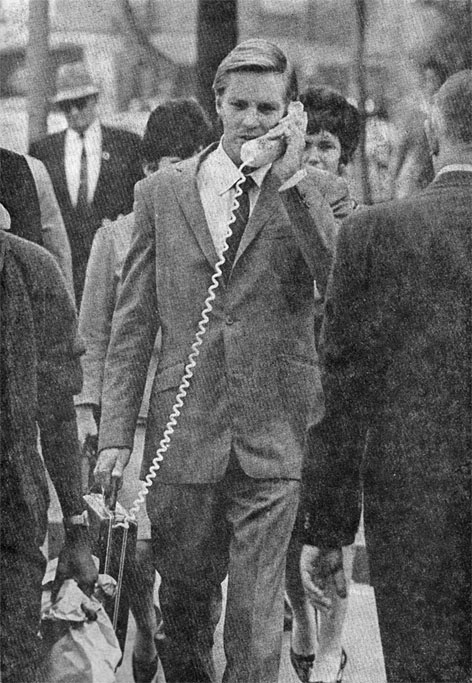It’s said in his NYT obituary that the just-deceased Intel founder Andy Grove “helped midwife the semiconductor revolution” and that “in some ways [he] was considered ‘the father’ of Silicon Valley.” But even the most plugged in of all can’t know everything, can’t collect and decipher information perfectly.
Case in point: Under a quarter century ago, Grove grew frustrated when others argued smartphones could soon become a reality. Peter H. Lewis’ 1992 New York Times article was prescient about the emergence of smartphones, even if it didn’t realize the tools would be for everyone, not just the executive class. Grove, who’s quoted in the piece, was much further off the mark. An excerpt:
Sometime around the middle of this decade no one is sure exactly when — executives on the go will begin carrying pocket-sized digital communicating devices. And although nobody is exactly sure what features these personal information gizmos will have, what they will cost, what they will look like or what they will be called, hundreds of computer industry officials and investors at the Mobile ’92 conference here last week agreed that the devices could become the foundation of the next great fortunes to be made in the personal computer business.
“We are writing Chapter 2 of the history of personal computers,” said Nobuo Mii, vice president and general manager of the International Business Machines Corporation’s entry systems division.
How rich is this lode? At one end of the spectrum is John Sculley, the chief executive of Apple Computer Inc., who says these personal communicators could be ‘the mother of all markets.’
At the other end is Andrew Grove, the chairman of the Intel Corporation, the huge chip maker based in Santa Clara, Calif. He says the idea of a wireless personal communicator in every pocket is “a pipe dream driven by greed.”
These devices are expected to combine the best features of personal computers, facsimile machines, computer networks, pagers, personal secretaries, appointment books, address books and even paperback books and pocket CD players — all in a hand-held box operated by pen, or even voice commands.
Stuck in traffic on a business trip, an executive carrying a personal communicator could send and receive electronic mail and facsimile messages from anywhere in the country. She could also call up a local map on a 3-inch by 5-inch screen, draw a line between her current position (confirmed by satellite positioning signals) and her intended destination, and the device would give her specific driving instructions (as well as real-time warnings about traffic jams or accidents). Certainly, these are just predictions for now, but they sure are fun to think about.•

